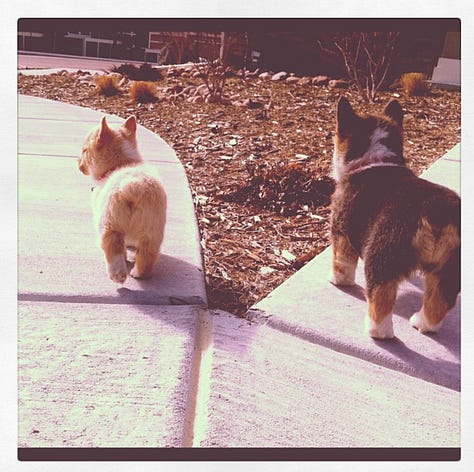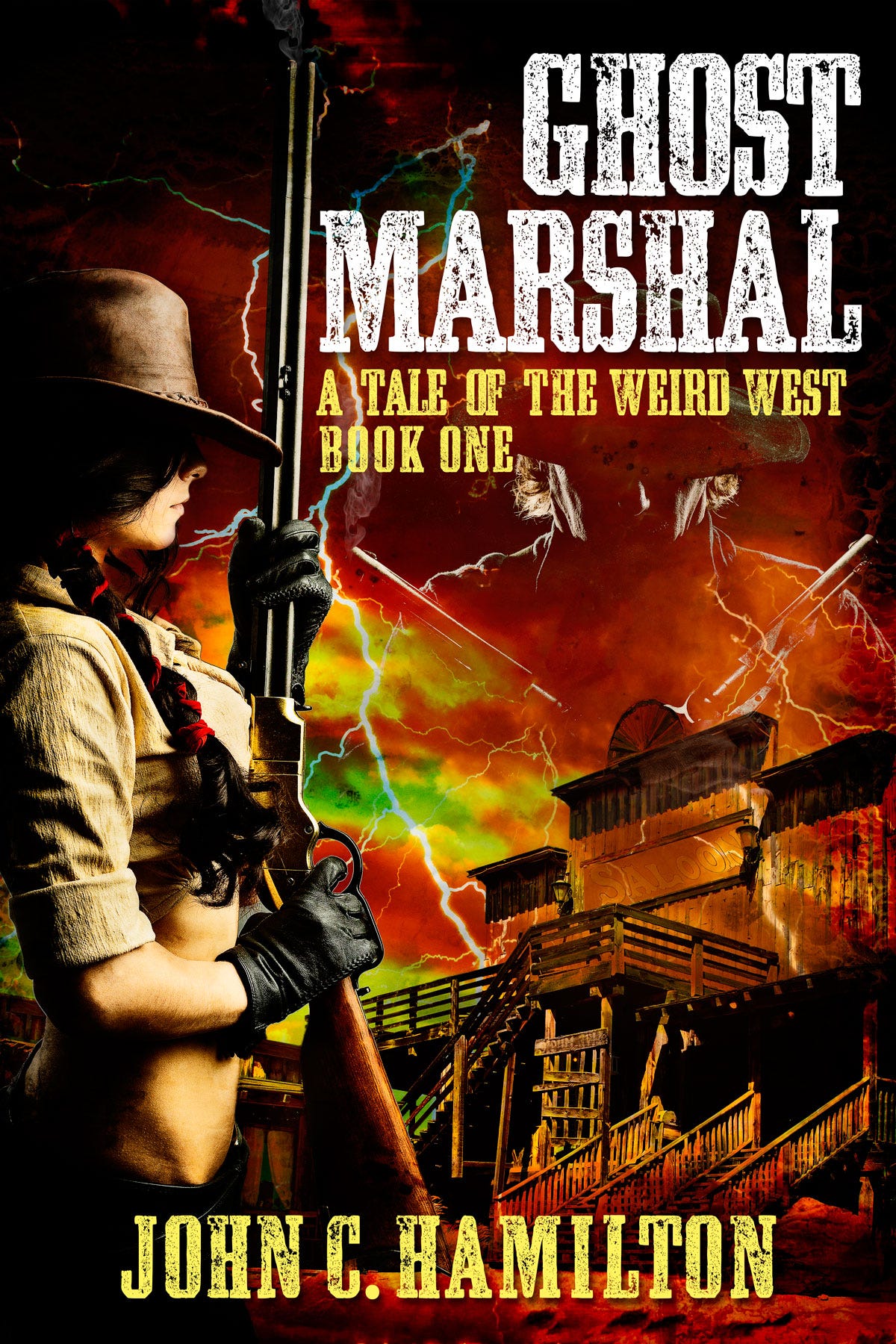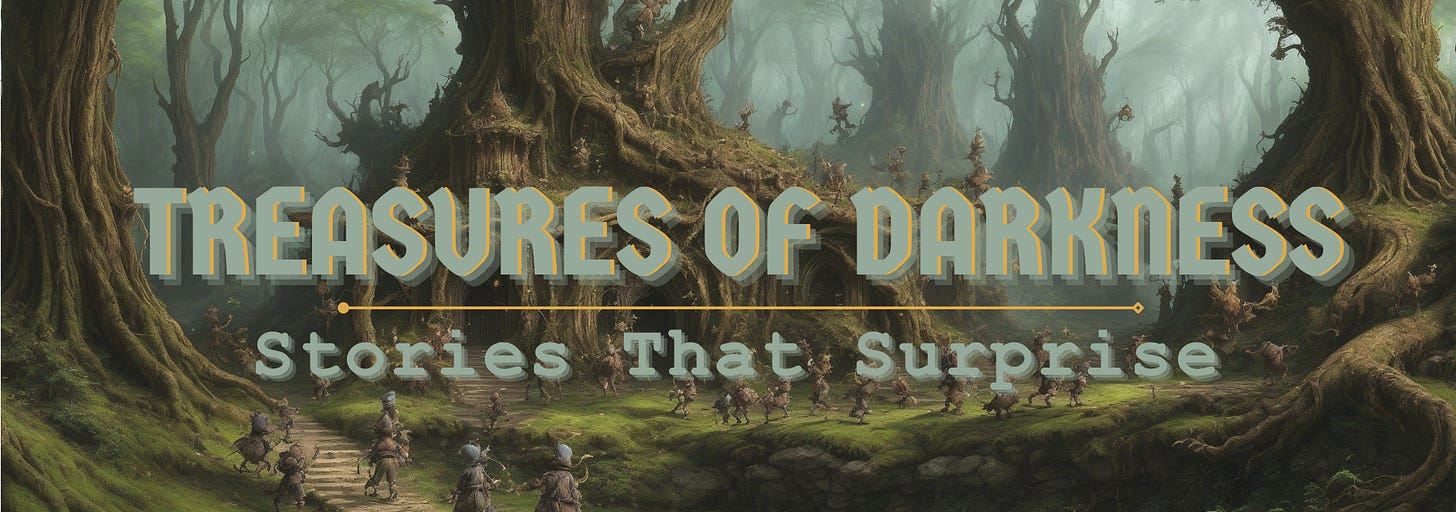The Magic of True Names: From Ancient Mythologies to Otherworld Outlaws
Is Toxicore just a Grimm Brothers' side character? J/K!
💫🌟 Greetings🌟💫
Hello, my dear readers,
As the amber hues of autumn paint the landscapes around us, I hope you’ve been finding time to enjoy the crisp fall air and the gentle rustle of leaves underfoot. The beauty of this season always reminds me of a little saying: “The trees are about to show us how lovely it is to let things go.” 🍁 #FallVibes
This sentiment rings especially true for my family and me this season, as we recently had to say goodbye to one of my parents’ beloved corgis, Tika. She was more than a pet; she was a small kisser with a big heart, as my dad beautifully put it. She and her sister have been with us for twelve years, since they were tiny puffballs, filling our lives with joy and love. Tika’s loss has left a paw-shaped void in our hearts, and while we mourn her, we also remember the countless heartwarming moments she gifted us.
Though the pain of loss is raw and real, life, as it always does, goes on. My three loveable pets, including Leeloo, who insists on sleeping on my head, have been a comforting presence amid this heartache. Their antics and unconditional love serve as a gentle reminder that indeed, it gets easier with time.



Let’s shift gears to something a little lighter, though, whaddya say? Now that Fae Planes Drifter has been out for a couple of months, many of you know that Lula has had a dragon-sized wrench thrown into her plans of rescuing her father—namely, that damnable Dagda has cursed her, making her unable to know her True Name. As you can guess, this is and has caused her a few irksome problems.
But what is a True Name, aka Soul Name or Spirit Name, and what makes it such a fascinating concept? So fascinating, and fundamental, in fact, that the idea has appeared in myths and stories from around the world and many cultures for centuries. Without further ado, let’s plunge into this intriguing world of names that are much more than mere labels…
The concept of a person’s True Name holds significance in various mythologies and folklores—usually it’s believed that knowing and uttering someone’s True Name grants power over that individual, as it represents their essence and identity on a deeper, magical level.
Here are a few examples of how the mythology of True Names is portrayed in different cultures:
Ancient Egyptian Mythology: In ancient Egypt, the belief in the power of names was profound. Egyptians held that one’s True Name encapsulated their entire being, and knowing it granted control over the individual. The god Ra was said to have created the world by speaking all things into existence, including their True Names. In some accounts, the knowledge of Ra’s True Name was kept hidden, as its discovery would have catastrophic consequences.
Native American Mythology: Many Native American tribes have beliefs surrounding the significance of True Names. It is thought that knowing a person’s True Name provides insight into their character, destiny, and connection to the spiritual realm. Sharing one’s True Name was considered a deeply personal and sacred act, often reserved for close family members or trusted individuals.
Celtic Mythology: Celtic folklore features the concept of a “secret name” or “hidden name.” It was believed that an individual’s secret name held great power and revealing it could lead to control or manipulation by others. Keeping one’s True Name concealed was seen as a form of protection against magical spells and enchantments.
African Mythology: Several African cultures believe in the power of True Names. Names are often given based on significant events or characteristics of a person, and knowing someone’s True Name is thought to grant influence over them. In some African traditions, individuals may even have multiple names, each representing different aspects of their identity.
There’s also the story of Lilith in Judaism (Lamashtu in Mesopotamian mythology) who refused to submit to Adam and called out the creator’s True Name in order to harness magic and be turned into a strix (bird-woman) so she could escape Eden. Now, here’s a gal that Lula and Hattie could probably relate to. Lilith is also associated with the lamia in Greek mythology. True fact: I have a lamia/gorgon tattoo on my right arm. She’s holding the novel Frankenstein, arguably the first work of modern science fiction. I’ve always been fond of Mary Shelley, and her mother, because how can you not be fond of woman who wrote like she did and kept her dead husband’s heart in a jar on her desk for inspiration? Amiright? I mean, the coolest thing on my desk is a really, really nice-smelling candle (rosewood and patchouli by PaddyWax, for anyone wondering).
But most Americans are probably most familiar with the power of True Names through stories like the Grimm brothers’ “Rumplestiltskin” and Ursula Le Guin’s Earthsea Trilogy. The Grimm brothers drew from widespread old European myths and folktales, and Le Guin drew many of her ideas from Native American and Norse mythology—all truly bottomless pots of gold!
As we bring this newsletter to a close, the main point remains. Despite the wide range of interpretations that different cultures present, there’s a central theme that ties them all together: a name is more than just a label. It’s a deep-seated connection to an individual’s essence, their identity, and their spiritual strength.
As you probably guessed, we’re delving into this topic because in the upcoming Book 5 of my Otherworld Outlaws series (don’t forget—you’ll get 25% off if you buy books from my direct store), the revelation of Lula’s True Name is set to become a crucial plot point. That’s not a spoiler, is it? I mean, if you know anything about me, you know I can’t let a good conflict or curse go to waste.
And while we’re on the subject of characters, have you ever noted any similarities between our grumpy friend, Toxicore, and the fairy tale character, Rumplestiltskin? It’s pretty easy to imagine Toxicore losing the plot and throwing a screaming tantrum. It’s just kind of who he is. And they’re both grouchy, irascible supernatural curmudgeons. Hmmm… <cue writer’s brain going down a very deep, very dangerous rabbit hole>
Well, that’s all the storytelling I have for you today. Stay tuned for more exciting insights from the Weird West. Until our next newsletter, enjoy your reading adventures!
PS: I’ve added a new network to my many socials. If you’re on BlueSky, come and join me!
Need something great to read while you’re waiting for the next Otherworld Outlaws? I gotcha covered!
Ghost Marshal: A Tale of the Weird West by John C. Hamilton is a rip-roaring good time that takes readers on an unforgettable journey through the 19th-century rough-and-tumble mining community of Deadwood. It’s a tale where bullets and brimstone meet, and the result is a story as hard-hitting as a six-shooter.
The story kicks off with a bang when Jessica Parker, our badass female protagonist, arrives in 1876 Deadwood, only to find her gold miner father brutally murdered. She’s understandably upset about this, and she’s not the type to sit around weeping into her handkerchief. Instead, the tragedy ignites a fire inside her, turning her from prairie wildflower to tough-as-nails gunslinger. Joined by the cantankerous ghost of Wild Bill Hickok, she confronts a murderous gang of outlaws, and the action never lets up.
The unlikely partnership between the spirit of Wild Bill and Jessie is a unique and captivating aspect of the story. It’s like a meeting of two great minds, only with more gunfights. Their exchanges are laced with humor, which is as refreshing as a cool drink of water in the heat of a Deadwood summer. Bill’s gruff exterior belies a softness that contrasts beautifully with Jessie’s perceived frailty, a façade that crumbles to reveal a core tougher than granite, and a hell of a lot tougher than any gold nugget. The duo uncovers a conspiracy that leads them on a hell-raising adventure, complete with gunfights, Chinese sorcery, barroom brawls, and demons.
Hamilton’s writing style is sharp and elegant, creating an atmosphere so palpable that you can almost smell the gunpowder and whiskey. I mean, all you have to do is read the first sentence, and you’re instantly there: “Death was in the air, like a stale breeze flowing from a crypt. It floated through the gold-rush town of Deadwood, filling everyone’s hearts with dread. Not that it was anything special. Death stalked the streets here every day. As long as you got out of the way, what was one more corpse.” It’s clear this isn’t Hamilton’s first rodeo; his research is thorough and his narrative style engaging.
In the end, the story did a marvelous job of resolving Jessie’s tragedy to her satisfaction while setting readers up for future adventures. I personally was left wanting to know more about the fate of Jessie’s friend, Annie. But perhaps that’s a tale for another day. Overall, Ghost Marshal is an exhilarating read, and I highly recommend it for anyone who loves a good Western with a weird twist. John C. Hamilton is a seasoned storyteller, with several writing awards notched on his proverbial pistol, and this book is another bullseye. He’s created a world that leaves readers grinnin’ like a weasel peekin’ in a henhouse door, and I can’t wait to see what’s next in The Ghost Marshal Chronicles.





When I first started reading this series, I kept waiting for Tox to be revealed as Rumpelstiltskin. I'm glad he's not! But there is a definite, noticeable similarity. :)